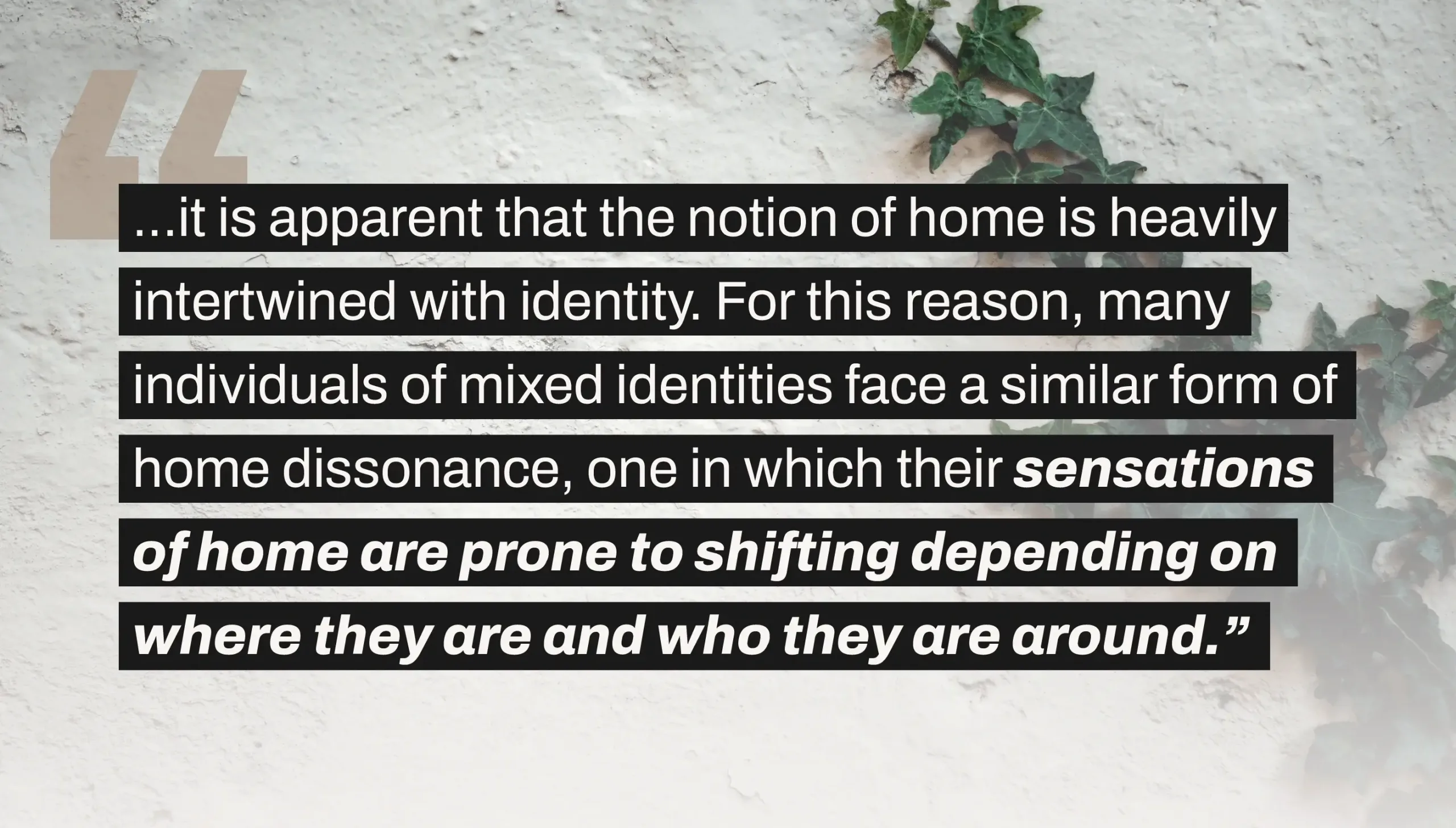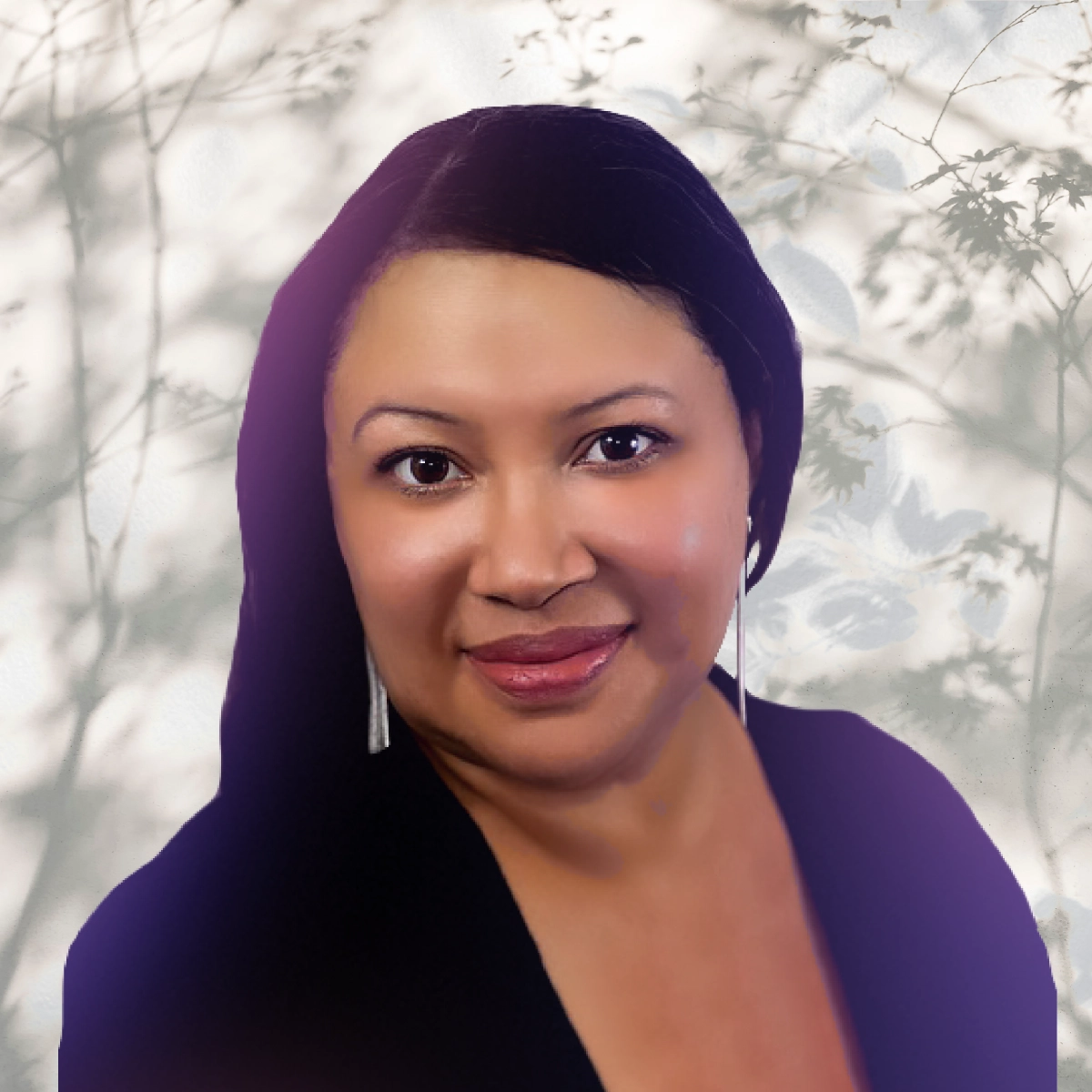Home: it’s one of those words used so often in everyday language that it appears to be a straightforward concept without many nuances. However, home is an incredibly vague term that differs from person to person. Popular phrases like “Home is where the heart is” or “There’s no place like home” do not honestly describe what home means; all it does is suggest that home is meaningful and important to us.
For individuals of mixed identities, the idea of what and where a home can be is often far more complex than many realize. Here is a list of podcasts and videos that illustrate the nuanced experiences of what and where home is through the lenses of mixed identities.
What is home? Growing up between cultures | Abeer Yusuf | TEDxTerryTalks (19 min)
Abeer Yusuf elaborates on the question of “What is home?” from her experience as a “third culture kid,” also known as a TCK. A TCK was born in one country but raised in another. The three cultures come from one’s native culture, the culture they’re raised in, and the culture they’ve chosen to create in response to juggling the varying cultures. Yusuf was born in India but raised in the United Arab Emirates, Kuwait, and Malaysia. As someone who has spent much of her life traveling between different countries, Yusuf admits that she feels most at home at Changi Airport, for it connects all of her living places.
Alongside the concept of home, Yusuf discusses her experience and insights into studying the identities of TCKs. She stresses the importance of understanding how TCKs develop their views of home and identity because the world is increasingly becoming globalized; thus, mixed identities will become more and more common.
NPR Code Switch - Wherever you go, there you are. (57 min)
This episode of Code Switch by NPR shares a touching story aired initially on Latino USA about the life of Miguel Macias, who immigrated from Spain to the United States. Macias openly discusses his personal struggles to advance his career in a more economically stable United States while maintaining his ties to his homeland of Spain. He acknowledges that many immigrants do not permanently return to their native countries while others do. However, Macias was caught in between, for he wanted to return to Spain for good, but he was slowly building another sensation of home in the U.S. that made it hard for him to truly leave. Macias struggled with depression and his love life as his home and identity as an immigrant were always in limbo. He sacrificed many of his meaningful connections in Spain to pursue a career in media, so Macias wanted to return to Spain with significant enough accomplishments and achievements that made his sacrifice worth it.
Journey Home Podcast - Noha talks about immigrant upbringing, dealing with loss, & self-development journey to find a HIGHER self! (1h 36m)
The Journey Home Podcast, created and hosted by Aimen Bedawi, revolves around exploring identity and home with his guests of often mixed identities. In this particular episode, Bedawi has a conversation with Noha Essawi, a woman born in Qatar to Egyptian immigrant parents who also studied at a university in Malaysia, which further complicates her sense of identity and home. Like many individuals of mixed identities, Noha struggled with her identity for much of her youth as she felt she was not accepted by both her native country (Qatar) and her parents’ country (Egypt). Interestingly, Noha shared how she felt more accepted in Malaysia and experienced a privilege because many Malaysians of the Muslim faith greatly respect Egyptians. Bedawi and Noha also touch on other topics like self-development, self-love, and coping with losing a loved one. The episode ends with Bedawi asking what home is to Noha, to which she replies that she has none anymore ever since her mom passed away.

The Guardian - ‘Farmed’: why did white families foster so many Black children in the UK? (32 min)
During an episode of The Long Read by the Guardian, Jimi Famurewa delves into the United Kingdom during the 1950s when thousands of children from Africa were fostered by white British families. Though the official numbers are not entirely clear, it was estimated that by the late 1960s, about 5,000 children a year from West Africa were being fostered or “farmed,” as it became known to some. On the surface, this transaction of providing African children with a more stable place to live temporarily seemed like a simple and practical idea. However, it created an identity crisis in many of the fostered children. Furthermore, many children faced racial prejudice and bullying in the UK, which led to psychological trauma. Despite this, when it came time for many of the children to return to their original homes and/or parents, inner conflict arose as many of the kids had developed an attachment to the UK. Other foster kids reported not being able to feel truly at home and welcome back in their African culture. As many people of mixed identities can relate to, many of the fostered children felt a sense of being too British to be African and too African to be British.
Jubilee - Do All Asians Think the Same? (clip to start at 6:46)
In this Spectrum episode posted by Jubilee, 6 Asian American individuals have their beliefs and values regarding their mixed identities assessed within a spectrum of answers ranging from “Strongly Disagree” to “Strongly Agree.” Responses to two statements, in particular, demonstrate some of the cultural dissonances that often permeate among people who identify with multiple cultures. The first of those statements was, “I would move to my heritage country permanently.” Four of the six participants were in the disagreement spectrum that they would move to the lands of their heritage. They voiced varying concerns, including being too American to fit in and being afraid of not being as accepted as they are now. You can see a stark contrast with the follow-up statement, “Asian culture is important to me.” Every participant answered within the spectrum of agreement, showing that their heritage culture is important to them. Though Asian lands may be their ancestral homeland, it does not necessarily mean that it is the home they feel comfortable residing in.
After listening to these podcasts and videos, it is apparent that the notion of home is heavily intertwined with identity. For this reason, many individuals of mixed identities face a similar form of home dissonance, one in which their sensations of home are prone to shifting depending on where they are and who they are around. Though there isn’t a concrete solution on how to navigate this nuanced experience, we can expect, and look forward to, our concepts of home evolving with us on our journeys. Take pride in your individuality and focus on continuing to nourish your spirit, for a strong identity will attract to it a strong sense of home.





